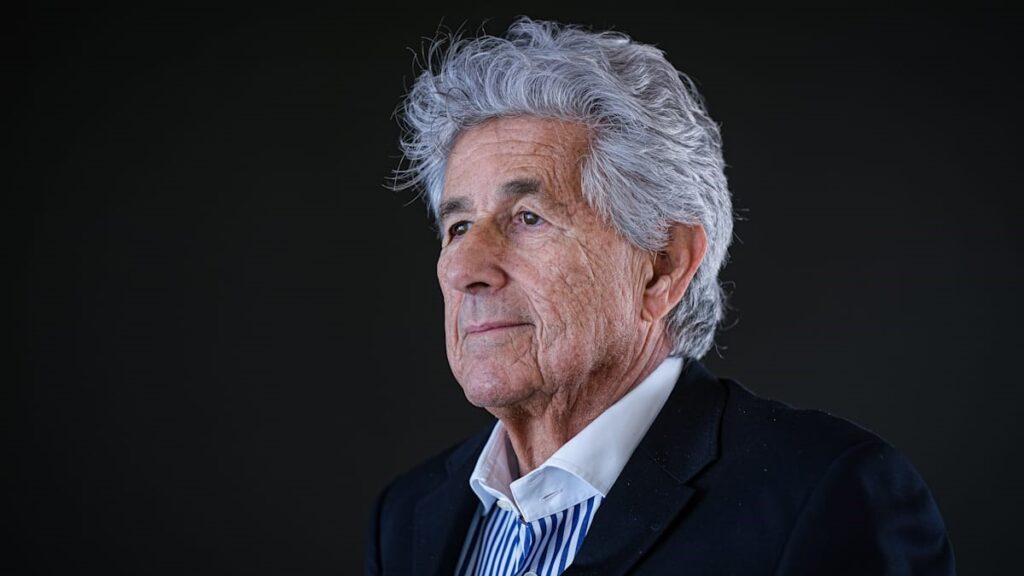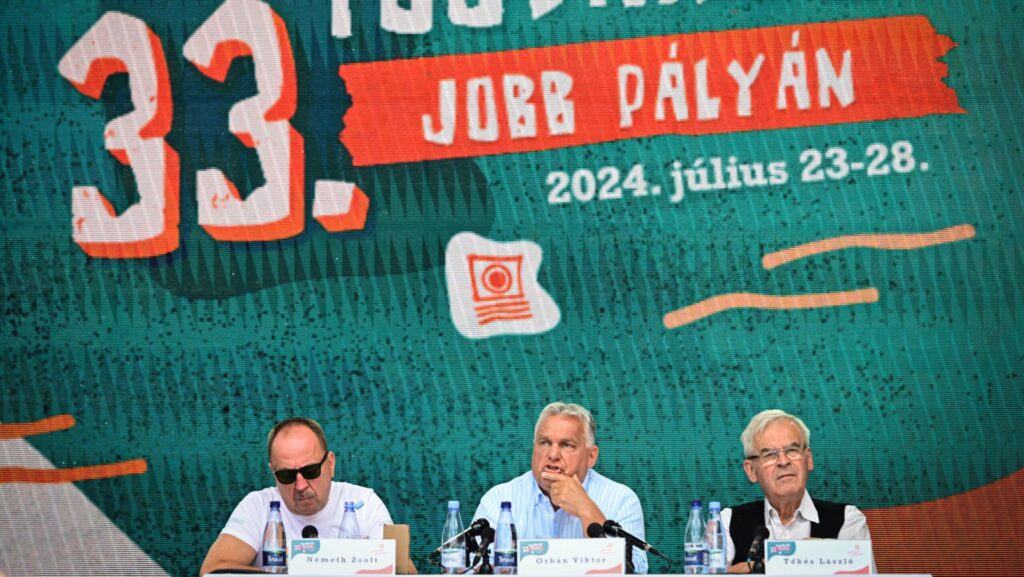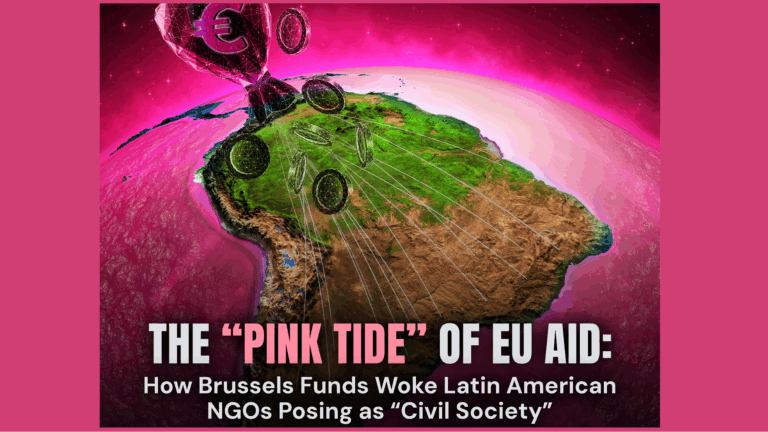Liberalism as a hegemonic philosophy has fallen. But we still have to find an ideology which is idealistic, romantic and gives a universal answer. But what this universal post-liberal offer may be? – asked Philip Blond on the occasion opening of the conference organized by the Danube Institute and the National University of Public Services on the prospects of British conservatism. The event was introduced by remarks concerning the current state of political philosophies. The tasks of conservatism, the problems of liberalism and the essence of conservative thought was discussed thoroughly. Gergely Deli, Director of National University of Public Service, reminded the audience that change is important in order to remain loyal to ourselves. Ferenc Hörcher, lecturer of the University recounted the historical connections of British and Hungarian conservatism. Philip Blond analyzed the vanishing of the liberal voter base in Great Britain, while John O’ Sullivan, the President of the Institute elaborated on the connection of liberalism and conservatism.
Conservatives in their post-Brexit state have to strongly concentrate on the defense of Britishness, lest the union disintegrate by the work of centripetal, EU-friendly provincial political forces
This also served as an unofficial preface for the first panel of the conference on the exact same topic. The speakers analyzed the nature of the relationship of the two ideologies. ‘Repudiation or Incorporation?’ as the title asked. John Fear, the first presenter argued that conservatism has a clear advantage over liberalism: the advantage of the idea of the optimal state. Following the steps of the English philosopher and political theorist, Michael Oakeshott, he explained that on the field of ‘politics of faith’ conservatism is much more attractive, as it prefers an ideal state of society and personal success over co-existence, contrary to liberalism. He was followed by a historical overview where Kit Kowol recounted the activities of post-war Tories who tried to carve out a distinctly conservative way of political thinking. The lecture’s notions of youth education and ‘spiritual awakening’ became important talking points among the audience, discussed frequently during the Q&A session. The next speaker, Kevin Hickson related to the notions of special British conservative policies in the field of economics. He identified the neo-liberal experiment as a failed historical route for the conservative party. He recalled that the right wing of the conservative party were critical of Mrs Thatcher from the beginning. He also warned that the conservatives in their post-Brexit state have to strongly concentrate on the defense of Britishness, lest the union disintegrate by the work of centripetal, EU-friendly provincial political forces. The audience warned him that it is a hard task, given that the identities of England, Wales, Scotland and Northern Ireland are distinct, and it is not easy to find the lowest common denominator in the emotional sense.

The second panel continued on the thread of the meaning of the conservative tradition itself. Matt Beech spoke about the ‘meaningful prospects of conservatism’ in the post-Brexit world. He emphasized that while the great antagonist, the Labour Party homogenized ideologically, the conservatives managed to build a broad coalition based on a plurality of traditions. This helped them to get through many fratricidal wars on the backbenches of the House of Commons, and delivered them victory in 2019, when a lot of Labour voters turned out to be more conservative than the Tories themselves. David Jeffrey continued with elaborating on these successful elements of modern-day British conservatism. He proved his points with a lot of data visualizations, analyzing the relative stance of the generally understood ‘post-liberal’ viewpoint to the main parties of the United Kingdom. He explained that the conservative party the real ‘post-liberal’ party of the new era, presenting quotes from a range of conservative politicians to support this view. He explained that the greater role of state, the longing for rebuilding of public institutions and the protectionist approach are like common denominators for the new era, and thus for Tory politicians to some extent. In contrast to contemporary conservative viewpoints, Daniel Pitt, the following speaker presented a prospective, not yet integrated conservative viewpoint, the approach to the protection of nature. He noted that the conservative approach with its value-centric and localist thoughts is much more suitable for underlining the importance of preserving our natural living environment.
James Orr argued that this cultural struggle has to be fought with the mobilization of theological notions of common good and meaning
The third panel drew a contrast with all these in the beginning: Eric Kaufmann warned the participants enthusiastically that the main focus of conservatives must be fighting the cultural war, the force of the liberal and left-wing activists who seek to erase conservative influence in the public sphere. Kaufmann called attention to the fact that conservatives need to counter not only their direct antagonists, but also the notion that the prevailing of conservative voices somehow are connected to the onset of authoritarianism. James Orr argued that this cultural struggle has to be fought with the mobilization of theological notions of common good and meaning, as this kind of cultural campaign is always effective – but in this case, the field is murky due to the collapse of institutional religion. Philip Blond added to these aims and principles the need for universally defined conservatism, in an ‘imperial’ sense. He insisted that ‘nationalism is self-harm’ igniting quite a debate on the theoretical framework of an ideal international system and civilizational definition. He pointed out that the check of unlimited human power has to be supranational, something that differentiates the ultimate good—the good defined in Plato’s Republic—from the will of powerful people and the will of their supporters. He added that the nation state is also essential in the conservative thought, but it needs systematic checks.
In the following session, the summary of the day, the conversation was centered around this topic, too. John O’ Sullivan, the host of the conference offered another definition to the empire of Philip Blond: that of civilization. Mr Blond insisted that his theoretical supranational framework must wield its own active potential, which makes it more of an empire than a summary of smaller communities. Danny Kruger conservative MP zoomed on the more fundamental elements of this redefinition of societal values and frameworks, and spoke about the need to build community among the youth – both for the common good of society and the benefit of the Conservative Party. Ferenc Hörcher recalled the societal organizational work of the Fidesz party after the defeat of 2002, with the establishment of Civic Circles.
The conference, while not settling on clear definitions, sparked and forwarded an ongoing discussion of the British Conservative Party about the relation of the old liberal order, the tasks ahead, and a lot of grandiose theories about the possible arrangement of the new post-liberal world. The symposium also provided a new life to the Hungarian-English conservative cooperation, which is not only beneficial for both parties, but also essential for realizing a possible future universalist definition of the world rising from the ashes of late twentieth-century liberal world order.








